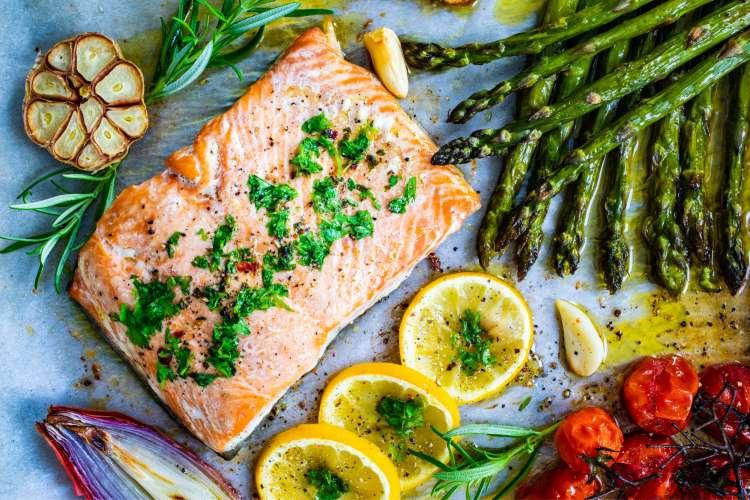The Ultimate Guide to Cooking Super Healthy, Low-Calorie Meals
Are you caught in the dilemma of choosing between scrumptious meals and maintaining a healthy lifestyle? You’re certainly not the only one grappling with this. Many find it challenging to strike a perfect balance that satisfies the palate while fitting into a health-conscious diet. Nonetheless, crafting dishes that are both
delicious and low in calories is completely achievable without giving up on taste or fulfillment. This comprehensive guide will provide you with detailed insights into preparing super healthy, low calorie dinners that are both satiating and nourishing.

Understanding the Basics of a Low-Calorie Diet
Adopting a low-calorie diet entails reducing caloric intake without neglecting essential nutrients. The essence of such a diet is balance—acquiring sufficient nutrients to fuel bodily functions without excessive calorie consumption. In low-calorie cooking, the emphasis is not just on reducing quantities but on enhancing quality.
Key Components of a Super Healthy Low-Calorie Meal
–
Lean Proteins: Protein is crucial for muscle repair and growth. Including lean options like chicken breast, tofu, fish, and legumes ensures your meals are light yet packed with protein.
–
Whole Grains: Grains such as quinoa, brown rice, and barley contribute significantly to satiety due to their high fiber content, and they support digestive health.
–
Fresh Vegetables: Abundant in vitamins, minerals, and antioxidants, vegetables are low in calories yet rich in nutrients and should be a mainstay in meals.
–
Healthy Fats: Essential fats found in avocados, nuts, and olive oil play a key role in brain health and satiation.
–
Flavorful Herbs and Spices: Enhancing food with herbs and spices boosts flavor without adding caloric weight.
Steps to Crafting a Super Healthy Low-Calorie Dinner
The creation of a wholesome, low-calorie dinner begins with thorough planning. The following are pivotal steps to achieve this goal:
1. Plan Ahead
–
Set Your Goals: Understanding whether you aim to lose weight, maintain, or simply incorporate healthier choices can guide your calorie and meal content decisions.
–
Choose Recipes Wisely: Favor recipes that include whole foods and minimal processed ingredients for a more nutritious outcome.
2. Shop Smart
–
Shop the Perimeter: Focus on the outer aisles of the grocery store to pick fresh produce, meats, and dairy products—areas typically stocked with healthier options.
–
Read Labels: Be wary of products that may appear healthy but are laden with hidden sugars or excessive calories. Always scrutinize the nutritional details.
3. Cook with Care
–
Use Cooking Techniques That Enhance Health: Opt for cooking methods like grilling, steaming, broiling, and baking, which do not involve excessive oil and help retain nutrients better than frying.
–
Prepare Batch Meals: Cooking in bulk can save time and promote a consistent healthy diet by making it easier to manage portion sizes and ingredients.
Sample Super Healthy Low-Calorie Dinner Recipe: Lemon Garlic Herb Salmon
This dish is not only a treat to your taste buds but also a nutrient powerhouse.
Ingredients:
– 2 salmon fillets
– 2 tablespoons olive oil
– 1 lemon, sliced into rounds
– 3 cloves of garlic, minced
– Fresh herbs (like dill, parsley, or thyme)
– Salt and pepper to taste
Instructions:
1. Preheat your oven to 375°F (190°C).
2. Place salmon fillets on a baking sheet, drizzle with olive oil, and season with salt, pepper, and minced garlic.
3. Top each fillet with lemon slices and fresh herbs.
4. Bake for 12-15 minutes or until the salmon flakes easily with a fork.
Enjoy this delectable salmon with a side of steamed vegetables and a serving of quinoa for a truly healthy, low-calorie dinner.
Tips for Staying on Track
–
Keep a Food Journal: Documenting your intake can help you notice trends and hold yourself accountable.
–
Stay Hydrated: Thirst is often confused with hunger; drinking enough water throughout the day can prevent unnecessary snacking.
–
Allow Flexibility: Being too strict can lead to dietary fatigue. Indulging in occasional treats can keep your motivation high without derailing your goals.
Conclusion
Creating and enjoying super healthy, low-calorie dinners can be a gratifying process that contributes to sustained health benefits. By integrating a variety of nutrient-rich ingredients and appropriate cooking methods, you can assemble meals that satisfy both your nutritional needs and your culinary preferences. Whether your goal is weight loss or overall health improvement, maintaining a consistent, mindful approach to eating is crucial. Remember, embarking on a healthier diet is a long-term journey, and every healthy choice you make counts.

